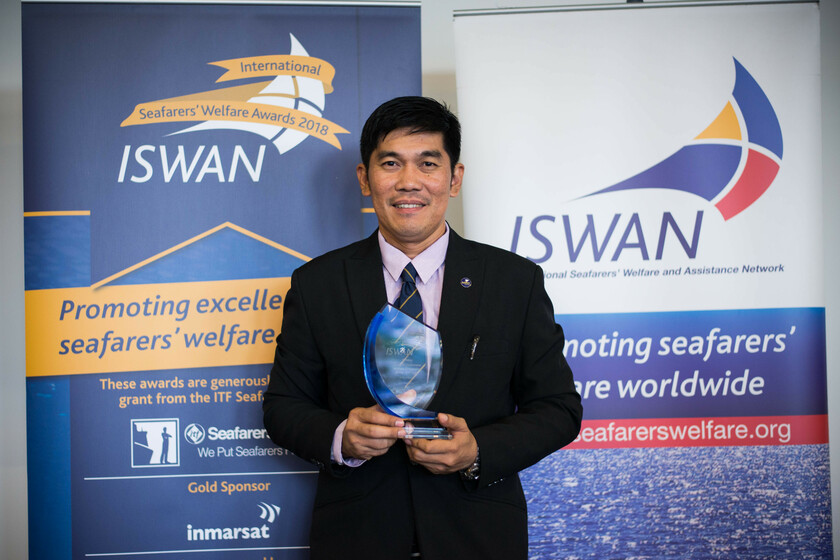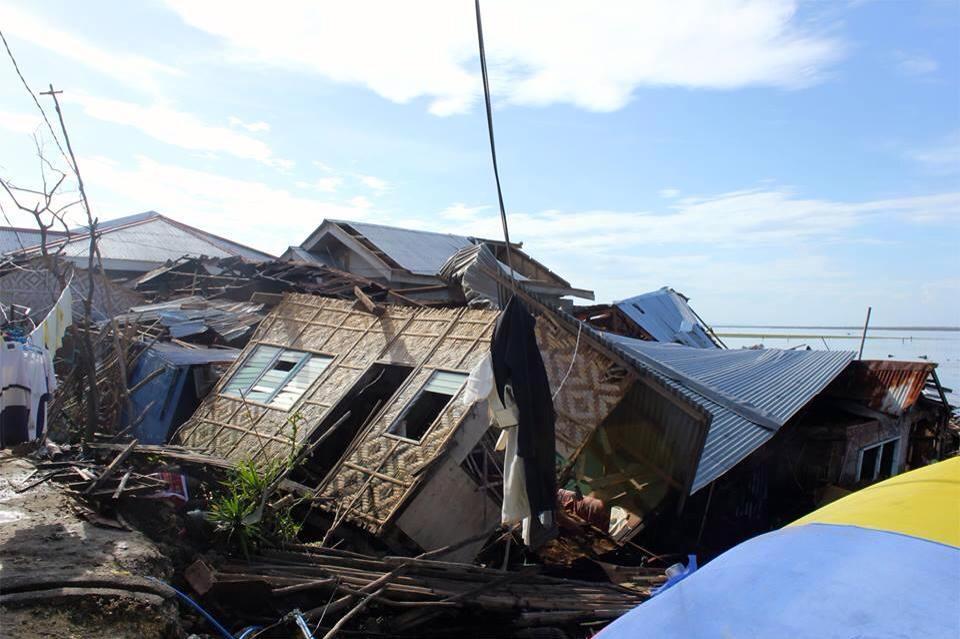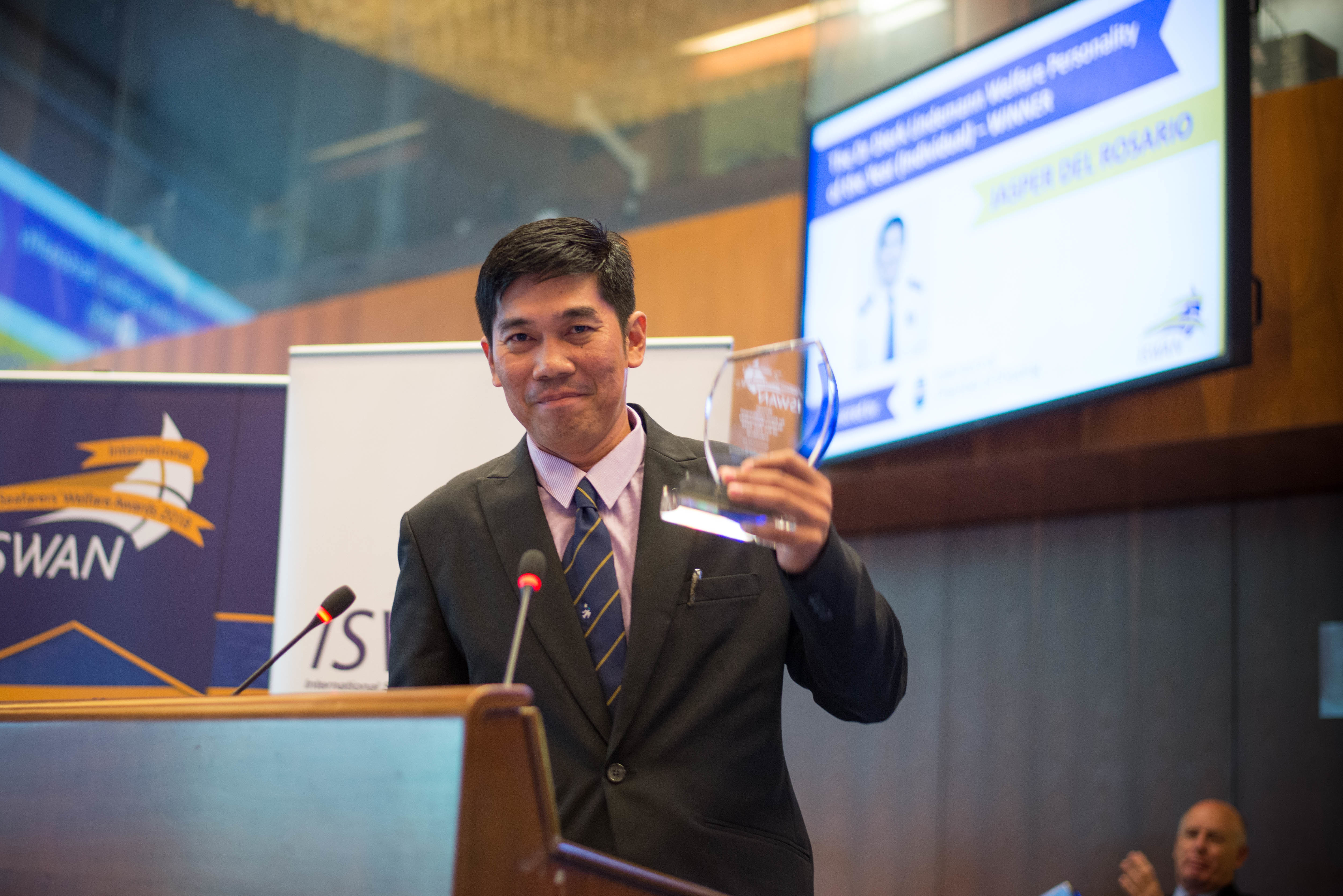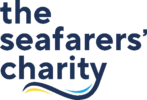Our International Seafarers’ Welfare Awards recognise the individuals, organisations and companies who have made an outstanding contribution to seafarers’ welfare.
In a series of interviews, we’ve been talking to the winners of 2018’s awards, which were presented at our ceremony in Geneva back in April. Our final interview is with Sailors' Society Port Chaplain Jasper Del Rosario, who won 2018’s Dr Dierk Lindemann Welfare Personality of the Year (Individual) award.
Tell us a bit about yourself.
I used to work with The United Methodist Church assigned in one of the churches in East Mindanao Annual Conference of the Davao Episcopal Area before I became a Port Chaplain for the Sailors’ Society for more than 9 years now.
During my Seminary days, I had an exposure/training on the chaplaincy job for 6 weeks in hospitals and prison and learned from there how chaplaincy works. And so when I was given the opportunity to work as chaplain for the Society in 2009, I right away accepted the job as this is an exciting/meaningful ministry.
How do you support seafarers in your work for the Sailors’ Society?
I support seafarers in many different ways depending on what their needs are which I am capable of providing with/or offer. This involves visiting them in their ships and speaking with them whilst they are in the port, providing counselling when there’s a need and upon their request, providing free transportation services to them and for their families, visiting them in their homes including those who are already retired from work, to name a few of what I do on a daily basis. I also got involved in the coaching training which is called Wellness at Sea training programme, helping seafarers discover their hidden skills and potentials so they could still enjoy their lives to the fullest even whilst they are on board ships away from their loved ones or while on vacation with their families.
You were working as a port chaplain when Typhoon Haiyan hit Tacloban in the Philippines. How did you help seafarers and their families in the aftermath?
Together with my fellow chaplain Frans who was sent by the head office here in the Philippines, we were sent to Tacloban and nearby cities to look for seafarers and families that have been affected by the powerful typhoon. We first found the seafarers of the vessels that have been washed ashore, gave them their immediate and practical needs including financial assistance. From them we were able to locate other families and seafarers in the area, provide them their initial and urgent need at that moment and further assessed their long term needs and their communities. As a result, we were able to help these seafarers rebuild their homes devastated by the typhoon, help the community with health centers, provide school needs of their children including classrooms, and provide some boats to fisher folks. We designated a family chaplain to help with the sociological and psychological needs of the seafarers and families especially their children to help them cope with the long term effect of the tragedy in their lives.
Pastoral care and a ready ear to listen has also been afforded to them especially those who have lost loved ones because of the horrific tragedy. These are some of the things we did in the aftermath.
What do you enjoy most about your work?
I enjoy every bit of it, especially when I am able to provide even a simple need of a seafarer like free transportation to and from the port… Most fulfilling of all is when I became an instrument in responding to the most distressful event in seafarers’ lives or their family helping them ease some burden they are facing. For example, when we responded to the distress calls and needs of seafarers who were abandoned in Malta for 11 months or more, we provided basic needs of their families here in the Philippines. Helping those who were survivors of piracy and many other things.
What are the most challenging parts of your work?
Every day is a challenge. When responding to a call from a seafarer in the ship in the middle of the night because they needed transportation especially during rainy seasons is quite challenging to me, to me it is where they need us the most as taxis are not allowed inside the port area where ships are berthed. Some wharfs are muddy and flooded on the way in. I keep my mobile open during these times as families of seafarers with small children who came to visit them come and go off the port. A challenge at times is when I am not given a pass to enter the port but I have to do something to deliver the help needed by the seafarers and family.
How did you feel when you found out you had won the Dr Dierk Lindemann Welfare Personality of the Year (Individual) award?
I was completely surprised when I heard about it and whispered thanks to those who have nominated me for the award. Although, I am not really looking to get back to the things that I do for the seafarers, it’s also nice to know/feel that they recognize what the welfare organization and personnel is doing to them and their families.
How have things changed for you since winning the award?
I have been given more inspiration to do what I have been doing and hope to do better in the service for the seafarers and their loved ones. I was elated by the congratulatory words of my colleagues and friends, from my family – best of all my family who in one way or another had helped me achieve what I achieved. When they said they are proud of me is something that I will cherish and given me enthusiasm to do my best even more.
Why is the role of port chaplains like yourself so important in seafarers’ welfare?
Based on my experiences with them for 9 years now, seafarers have an immense amount of trust to chaplains, where they believe that chaplains can really help them at some point in their lives. They don’t hesitate to tell their stories to us even the most sensitive ones, and we are most willing to listen and lend a hand to them. Likewise, like many other individuals/professions, chaplains also understood what the seafarers are going through, their situation, their family, and their struggles in life both at home or whilst at sea. Aside from that, I believe that chaplains like me can help the seafarers, those who have struggles from it, reconnect them to the Highest Being whom they value so much, or God that gives more meaning to their existence, depending on situations where individual seafarers are in.
What plans do you have for the future?
I hope to reach out to more seafarers and their loved ones in the future, hope to become a vessel for their wellness both at home and at sea, in whatever capacity I can. Many thanks for the opportunity to do this. More power to ISWAN and to the entire welfare community that takes good care of the seafarers.






